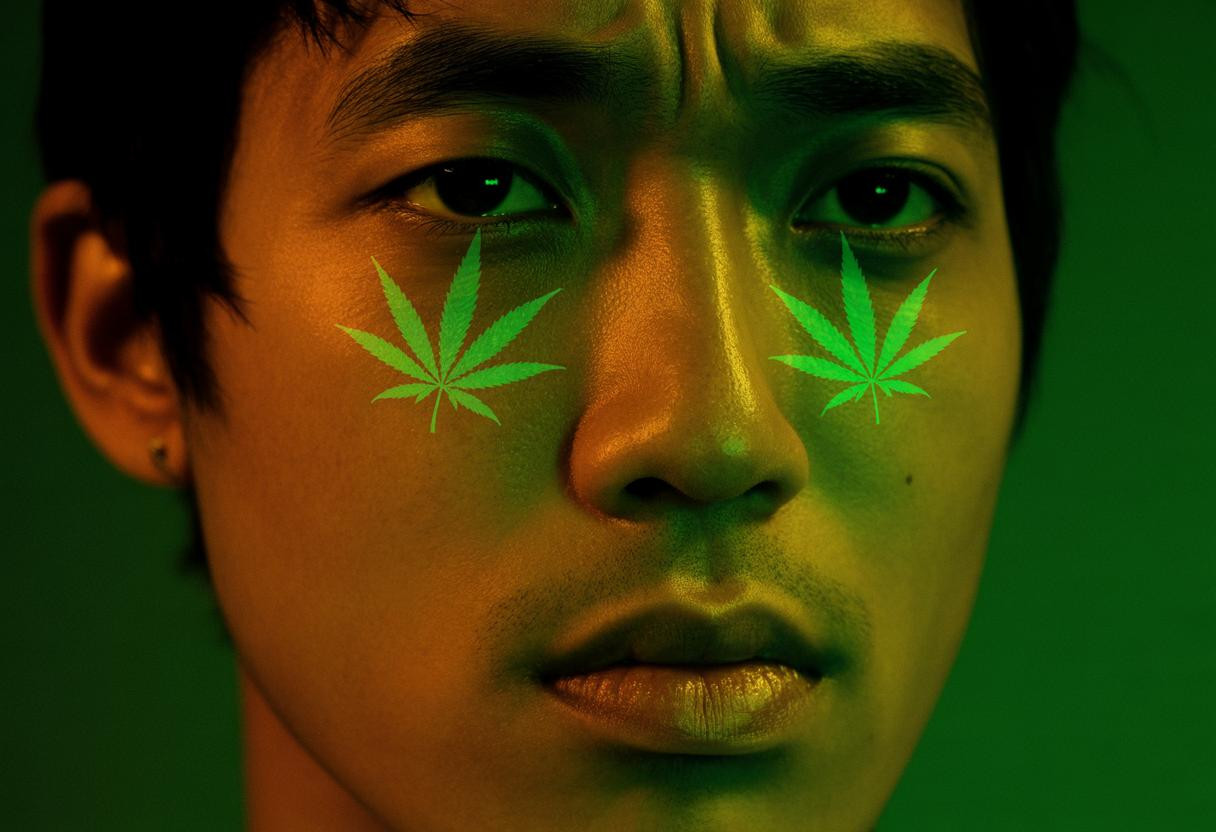Thailand’s cannabis revolution has transformed from complete prohibition to widespread acceptance faster than any nation in Southeast Asian history, but the psychological and social forces driving this 157% surge in usage reveal disturbing patterns that experts warn could reshape an entire generation’s relationship with mental health and economic opportunity.
The lightning-fast transformation reshaping Thai society
In just three years since decriminalization, Thailand has witnessed an unprecedented cultural shift. Over 11,200 dispensaries now operate legally across the country, generating an estimated $1.31 billion in 2024 alone. This dramatic change has positioned Thailand as Southeast Asia’s cannabis pioneer, contrasting sharply with neighboring countries that maintain strict prohibition policies.
The speed of adoption has surprised even government officials. What began as a medical-focused policy has evolved into a complex social phenomenon affecting everything from youth behavior to international tourism. Recent surveys indicate that one-third of Thai citizens now believe cannabis can cure cancer, highlighting how quickly misinformation can spread alongside legitimate medical applications.
Unlike evidence-based health research challenging conventional wisdom, many cannabis health beliefs in Thailand lack scientific backing, creating a dangerous gap between perception and reality.
Why young Thais are embracing cannabis at alarming rates
The generational divide fueling usage patterns
Youth adoption has skyrocketed since legalization, with past-month cannabis use increasing significantly among 15-24 year-olds. This demographic shift reflects broader generational attitudes toward wellness, risk-taking, and social acceptance. Unlike their parents, who associate cannabis with criminality, younger Thais view it as a lifestyle choice similar to alcohol or tobacco.
Mental health professionals report that over 40% of young heroin users began their substance journey with cannabis, suggesting concerning gateway patterns. The normalization of cannabis culture through social media and peer influence has accelerated adoption rates beyond what policy makers anticipated.
Urban prosperity driving consumption trends
Thailand’s expanding middle class, particularly in Bangkok and major cities, has embraced CBD-infused products ranging from beverages to beauty items. These urban consumers, often earning 30,000-50,000 baht monthly, view cannabis products as premium wellness investments rather than recreational drugs.
This socioeconomic pattern mirrors complex dynamics seen in other areas, such as complex socioeconomic dynamics affecting relationships with foreigners, where economic factors significantly influence personal choices and social behaviors.
The hidden psychological triggers driving widespread acceptance
Thailand’s cannabis boom reflects deeper psychological needs within Thai society. The COVID-19 pandemic saw alcohol and tobacco use decrease due to lockdowns, while cannabis consumption increased, suggesting it serves as an alternative coping mechanism for stress and uncertainty.
Cultural messaging around cannabis has shifted from “dangerous drug” to “natural medicine” and “economic opportunity.” This reframing has been particularly effective among populations seeking alternatives to traditional healthcare or additional income sources through cultivation and retail.
The government’s initial distribution of free cannabis plants in 2022 symbolically transformed the substance from forbidden to encouraged, creating powerful psychological permission for experimentation.
Critical warning signs experts can’t ignore
Mental health risks emerging rapidly
Healthcare professionals document increasing links between cannabis use and depression, anxiety, and suicide risk, particularly among adolescents. Youth cannabis use disorders are rising faster than treatment infrastructure can accommodate, creating a potential public health crisis.
The normalization speed has outpaced education efforts, leaving many users unaware of addiction potential and mental health impacts. Unlike other countries with gradual legalization processes, Thailand’s rapid policy shift provided little time for comprehensive public education campaigns.
Economic consequences beyond the headlines
While projections suggest the legal cannabis market could contribute $43 billion annually by 2025, unregulated markets risk undermining these benefits. Small-scale farmers and entrepreneurs who invested heavily in cannabis cultivation face uncertain futures as large corporations enter the market.
This economic transformation reflects broader regional trends, similar to regional patterns of cross-cultural relationships in Southeast Asia, where rapid social changes create both opportunities and vulnerabilities for local populations.
What Thailand’s cannabis experiment means for the future
Thailand’s experience serves as a real-world laboratory for rapid cannabis policy change. With 80% of citizens supporting reclassification to controlled status, the country may soon reverse course, providing valuable data on policy reversibility and public opinion shifts.
The ultimate outcome will influence cannabis policies across Asia and beyond, making Thailand’s next moves critically important for global drug policy evolution. The stakes extend far beyond one nation’s experiment – they encompass the future of evidence-based drug policy worldwide.
